Producer Bulletins and Factsheets
Producer bulletins aim to present technical research results in a clear and concise manner that can be understood and implemented by organic farmers.

Impact Of Organic Cropping Systems Through Life Cycle Assessment
Agriculture has been recognized as a critical contributor to environmental challenges, including climate change, biodiversity loss, and water quality decline. Farming systems are complex, influenced by interactions between crops, pests, nutrient application, soil types, climate, and management practices. The environmental performance of a farming system must consider the direct impact of management practices as well as the manufacturing of inputs. This bulletin introduces the core concepts associated with life cycle assessment (LCA), an approach used to evaluate the environmental performance of manufacturing or production systems, in this case, organic cropping systems.
Download [PDF 4.46 MB]
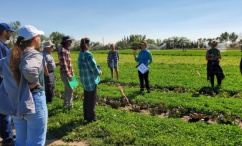
Organic Seed Breeding and Variety Trials: Finding the Right Seed for your Organic Farm
Part 1: Crop Varieties for Canada’s Organic Farmers
Download [PDF 7.61 MB]
Part 2: Developing Vegetable Varieties for Canada’s Organic Farmers- Canadian Organic Vegetable Improvement (CANOVI)
Download [PDF 11.9 MB]
Part 3: Beyond Yield- The Many Goals of Organic Plant Breeding
Download [PDF 18.8 MB]
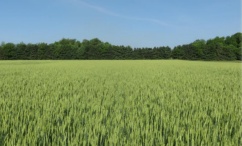
Legume Cover Crop Performance in a Southwest Ontario Grain Rotation
The best cover crop management options to maximize N for a following crop while maintaining or enhancing soil health remain largely unknown, especially for organic corn, soybean, and winter wheat production. In Organic Science Cluster 3, Activity 4, replicated field trials were done to determine whether two seasons of winter-hardy leguminous cover crops are profitable and sustainable in an organically managed soybean-winter wheat-corn rotation, in SW Ontario.
Download [PDF 0.775 MB]
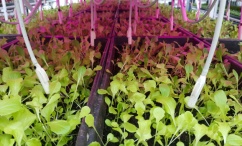
Organic Seed Disinfection
Seed disinfection can be a valuable tool for many producers, including field crop farmers, market gardeners, and sprout producers. Although the majority of microorganisms on seeds have a neutral or positive effect on plants, some can cause disease. Seedborne diseases can affect germination, growth, and yield of the crop. For sprout producers, however, food safety is top of mind since poor management of sprouts has been linked with foodborne diseases, such as E. coli O157:H7, Listeria, and Salmonella.
Download [PDF 11.7 MB]
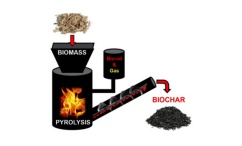
Biochar in Growing Media: Does it Help or Hurt Plants?
Biochar is a charcoal-like substance created by burning organic materials, often wood or woodchips, in an oxygen-deprived situation (pyrolysis). There has been a lot of hype about biochar with extravagant claims made about its potential to sequester carbon (thereby mitigating effects of climate change) and also to improve crop yields.
Download [PDF 0.765 MB]
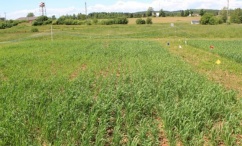
Green manures and dehydrated poultry manure to optimize fertility in organic grain production system
A factsheet detailing green manures and dehydrated poultry manure to optimize fertility in organic grain production systems.
Download [PDF 0.989 MB]

Biological Pest Control
Organic farmers can control pests by providing habitat to support beneficial organisms, using trap crops, releasing biocontrol agents or applying biopesticides (pesticides made from natural sources, such as microorganisms, plants, animal tissue or minerals). Biocontrol (biological control) agents are living organisms that are introduced or supported by humans with the intent to harm invertebrate pests. Biocontrol agents are sometimes called “enemies” because they attack pests. Biocontrol agents include predators, parasitoids, parasites and pathogens of pests.
Download [PDF 2.35 MB]
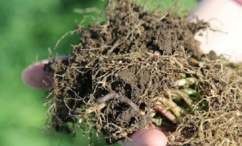
Organic Greenhouse Advances: Root Environment and Wastewater Management
Dr. Martine Dorais and her team have played a leading role in boosting the efficiency of organic greenhouse production to a level equivalent to or surpassing that of hydroponics, while continuing their efforts to reduce its environmental footprint. Organic farming could do more, and better, and has done exactly that.
Download [PDF 2.35 MB]
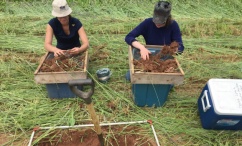
Green manures and amendments for organic systems findings from Eastern Canada
Maintaining adequate soil fertility to sustain acceptable yields has long been regarded as one of the greatest challenges for organic producers. Organic farmers must adopt sound crop rotation that build fertility by promoting good soil health. This is achieved through the use of crop rotation including soil building crops and using organic soil amendments.
Download [PDF 6.37 MB]
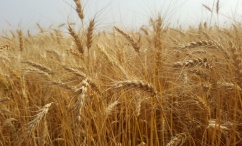
Breeding for Organic Field Crops in Canada
Over the last 10 years, researchers and breeders involved with the three Organic Science Clusters have been exploring approaches to breeding cultivars suitable for organic management. They have looked at the costs and rewards in organic breeding and the impact these cultivars may potentially have on the industry. This bulletin outlines some of the key findings in organic field crop breeding research.
Download [PDF 5.66 MB]
